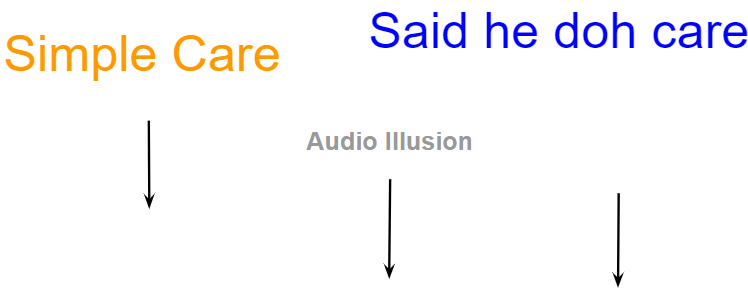The Development of Trinidad & Tobago Language
People from Trinidad & Tobago speak English.
There is such a beautiful and fascinating dialect in Trinidad & Tobago.
Throughout its history, the languages spoken in the country underwent lots of changes.
Today, the people speak a type of English known as Trinidadian English and Tobagonian English.
Together it is known as Trinbagonian English.
The separate islands of Trinidad and Tobago make up one country.
The history of language development for the country is complex.
Its complexity is due to the varied number of rulers and people that exerted its influence on the shaping of Trinbagonian Creole.
According to the University of the West Indies, there has been several Amerindian languages spoken in the nation, which were common to neighboring countries such as Venezuela, Guyana, Suriname, etc.
As transatlantic navigation became possible during the colonial period, the languages spoken in Trinidad & Tobago changed from the native languages to the languages of their ever-changing masters.
Some of these languages spoken during the period were French, English, Spanish, Hindi, Chinese and Tamil.
Check Out The Audio Illusion
Said he doh care – simple care




Getting to Know Trinidad and Tobago slang
Trinidadians are known for their creative use of slangs.
Some slangs are somewhat self-explanatory while others are not so obvious to understand.
Here are some slangs spoken in Trinidad and Tobago:
Peter pay for Paul and Paul pay for all – This means that if one person does something wrong, everyone else would be held accountable.
Head little shaky – a statement used to describe unstable behavior.
Yuh make the child, but you don’t make the mind – a phrase usually said when a parent doesn’t have control over their child.
Monkey know what tree to climb – usually said in reference to someone that picks their battles wisely.
He/she have sugar – a person has diabetes.
Doh pelt stone if yuh live in a glass house – be prepared to take criticism if you give criticism.
Don’t even trust your shadow – don’t trust anyone.
You never miss the water till the well run dry – appreciate the things that you got.
Take everything with a pinch of salt – don’t believe too much.
Thief from thief does make God laugh – a phrase used to bring awareness to dishonesty.
Drunk or sober mind your business – don’t get caught up too much in other people’s affairs.
Do so doh like so – a phrase used to point out hypocritical behavior.

Sound Wonders & Speech Illusions
A beginners guide to the Science of Sound, Psychoacoustics, Linguistics & Phantom Speech Illusions.
Order on Amazon
What Makes Trinidad and Tobago English Sound So Different from Standard English?
There are the accent Trinbagonians use, the way they put together their words and prosody of speech.
Accent:
Trinbagonians pronounce words phonetically different from standard English speakers.
This is just one aspect of their dialect that gives them their ‘Trini’ way of speaking.
The pronunciation of each phone that make up words are said differently, sometimes with a higher or lower pitch, or said with a bit of a longer or shorter duration.
The way words are put together in Trinidad & Tobago dialect:
People who are not accustom with hearing Trinbagonian English can easily get confused because of the way Trinbagonians put together words in a sentence.
Words are often rearranged when spoken in the local dialect.
For example, a standard English speaker may say a phrase such as “How far along is she?”, while a Trinbagonian may say “How far along she is?”.
Prosody of Speech:
Prosody describes the rhythm and flow of speech.
It is different from an accent in that it doesn’t change the pronunciation of the speech sounds that make up a word.
Instead, it changes the overall rate of speech, the pitch of the voice, etc.
The prosody of Trinidad & Tobago speech can be described as singsong-like.

Why Does the Trinbagonian Accent sound So Sing Song?
People from Trinidad & Tobago may sound like they are singing with their words when they speak because of how often their tone of voice may change during speech.
Depending on the person speaking, the singsong style can be relatively noticeable when some Trinbagonians speak, whereas for other Trinbagonians it isn’t noticeable.
There are many different styles of Trinidadian accents, and you can hear it in the different slangs.
Trinbagonians Don’t Pronounce “R” After Vowels
This fact may go unnoticed for most of the native speakers as they may not recognize the fine details in the way they speak.
Two examples of words where ‘Trinis’, as they are called, do not pronounce their ‘R’s are in the word Carnival, and the word harden – which means disobedient.
According to the study on Trinidadian creole, there are a few exceptions to this rule.
Certain words found in Spanish, Hindi and Arabic, that Trinbagonians borrow are pronounced with the ‘R’ fully articulated.
One example is the word Kurma, which is an Indian delicacy.
As a side note, the islanders don’t always pronounce their ‘t’s in the word ‘don’t.
These are just some of the things that contribute to the Trinidad & Tobago dialect.

Sound Wonders & Speech Illusions
A beginners guide to the Science of Sound, Psychoacoustics, Linguistics & Phantom Speech Illusions.
Order on Amazon
Language & the Caribbean Dialect
There are many different languages found in the Caribbean.
Some of them include Dutch, French, Spanish and Haitian creole.
Each language has its own distinct sound that is the characteristic heritage of the different cultures that adopted the language.
